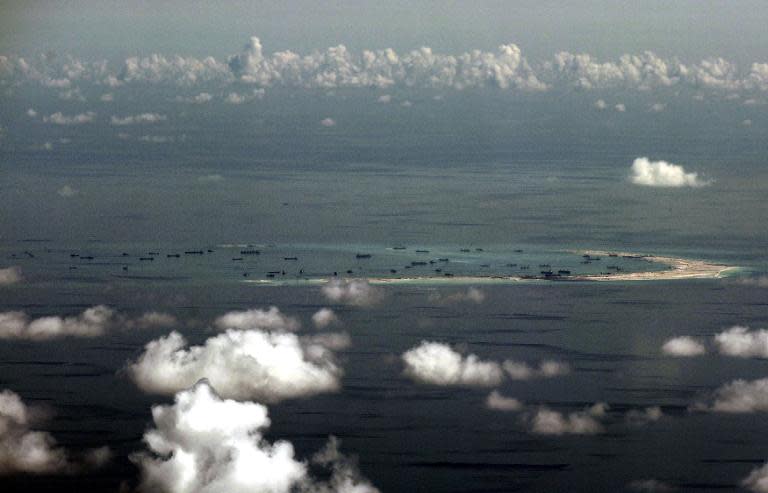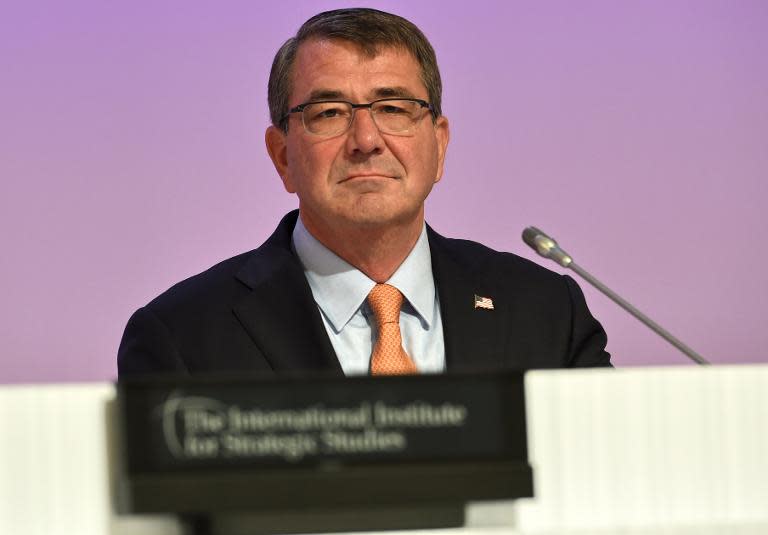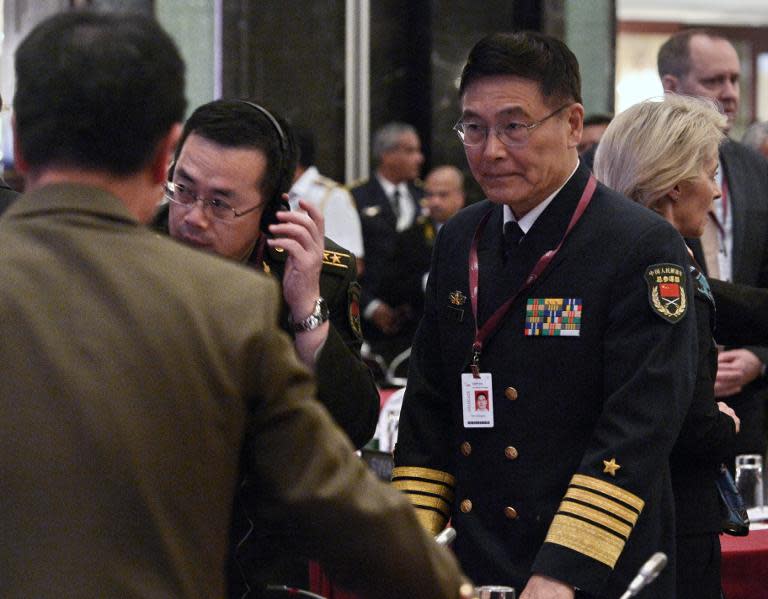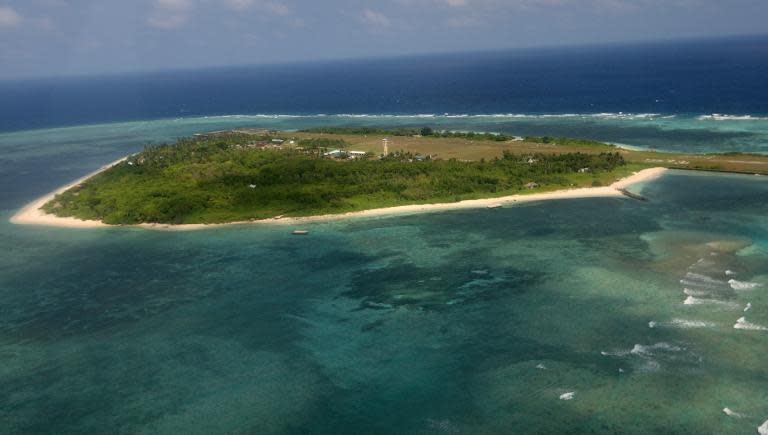US hits out at China over sea reclamation, vows more patrols
The United States on Saturday called for an immediate end to China's intensifying reclamation works in the South China Sea and vowed to continue sending military aircraft and ships to the tense region. US Defense Secretary Ashton Carter told a high-level security conference in Singapore that Beijing was behaving "out of step" with international norms. China insists it has sovereignty over nearly all of the South China Sea, a major global shipping route believed to be home to oil and gas reserves. "First, we want a peaceful resolution of all disputes. To that end, there should be an immediate and lasting halt to land reclamation by all claimants," Carter said at the annual Shangri-La Dialogue on security with a high-level Chinese military delegation in the audience. "We also oppose any further militarisation of disputed features," he said. He acknowledged that other claimants have developed outposts of differing scope and degree, including Vietnam with 48, the Philippines with eight, Malaysia with five and Taiwan with one. "Yet, one country has gone much farther and much faster than any other. "China has reclaimed over 2,000 acres, more than all other claimants combined and more than in the entire history of the region. And China did so in only the last 18 months," Carter said. - Chinese actions 'reasonable and justified' - Chinese delegation head Admiral Sun Jianguo, deputy chief of the general staff department at the People's Liberation Army, is scheduled to address the forum on Sunday. Sun and Carter spoke cordially on the sidelines before a luncheon at the forum, an AFP photographer said. But in the highest level rebuke to Carter's comments so far, Chinese Vice Foreign Minister Liu Zhenmin said China's sovereignty over the South China Sea was firmly established, and that it had showed great restraint despite provocation and "muscle flexing" from other countries. There was "no need to have (China's claims) strengthened through construction activities on relevant islands and reefs," as China's historical and legal claims to those areas were so strong, he was cited as saying by state news agency Xinhua. China meanwhile "remained committed to settling territorial disputes and overlapping maritime claims" Liu said. During a question and answer session after Carter's speech, Senior Colonel Zhao Xiaozhuo from China's Academy of Military Science said US criticism was "groundless and not constructive". Meanwhile in an interview released over the weekend by the Wall Street Journal, China's ambassador to the United States, Cui Tiankai, said US actions and rhetoric could make the region "less stable". The Chinese military this month ordered a US Navy P-8 Poseidon surveillance aircraft to leave an area above the heavily-disputed Spratly Islands. But the American plane ignored the demand. This was "clearly an attempt to provoke and escalate the situation," Cui said. Liu described "close-in manoeuvres" as "a crude act of muscle flexing that threatens to heighten militarisation of the South China Sea," without directly referring to the United States. Cui and Liu both stressed current Chinese construction activities were mainly for civilian rather than military purposes. - Code of conduct - In his speech, Carter urged China and the 10-member Association of Southeast Asian Nations (ASEAN) to adopt a "code of conduct" in the disputed waters this year. According to Xinhua, Liu said the code was "meant to be a set of rules for China and countries in this region rather than rules set by outsiders for us," adding that "positive progress" had been made. ASEAN members Vietnam, the Philippines, Malaysia and Brunei claim parts of the sea, along with Taiwan. In a speech at the forum, Malaysian Defence Minister Hishammuddin Hussein said if claimant countries did not exercise restraint, the territorial dispute "could escalate into one of the deadliest conflicts of our time, if not history". Washington on Friday accused China of deploying two artillery pieces on one of its artificial islands in the South China Sea. The heavy weapons, since removed, posed no security threat but their positioning -- within range of territory claimed by Vietnam -- underscored Washington's concerns that China is pursuing a massive island-building project for military purposes, US officials said. Carter said in Singapore that his country "will support the right of claimants to pursue international legal arbitration and other peaceful means to resolve these disputes". The Philippines infuriated China when it filed a formal complaint to the Permanent Court of Arbitration at The Hague in March 2014. China has so far refused to recognise the process.











